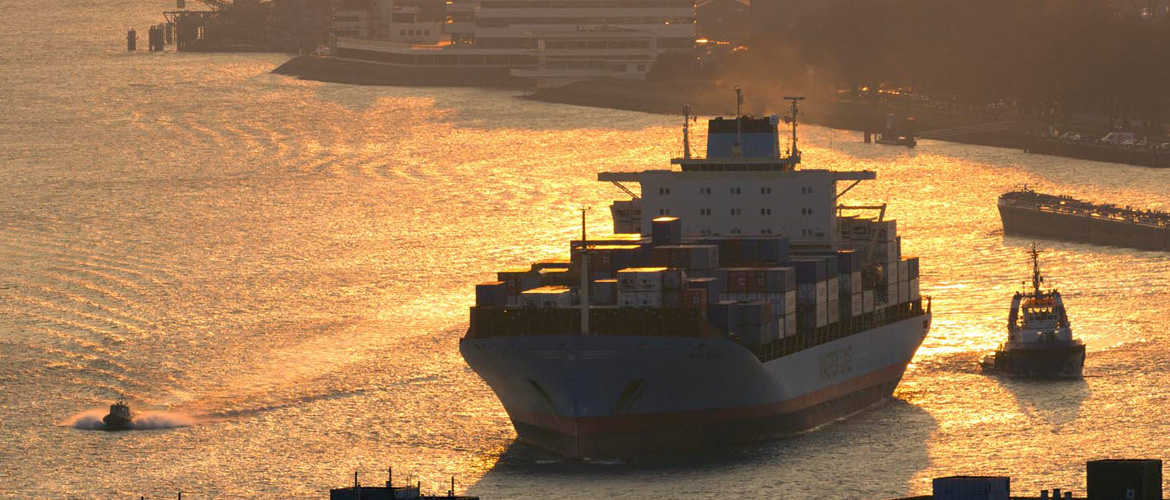Rising to every sea freight challenge

The UK has been caught in a supply chain storm since the Coronavirus outbreak at the start of 2020, with continuing congestion at the UK’s container ports leading shipping lines to stop calling at them and discharge UK-destined cargo in Northern Europe. The Noatum team has a working solution in place to protect supply chains from Asia and avoid congested UK ports.
For months, Felixstowe, Southampton, London Gateway and the UK’s primary ports, struggling with safe-COVID working protocols, have strained under the weight of arrivals, initially of PPE, then restocking and now continuing and sustained demand, driven by the shift to working and consuming more from home.
The UK’s ports, and consequently their shipping line and shipper customers, have been hit by major delays and have had more difficulties turning around ships and moving cargo out of the port efficiently, than mainland Europe terminals.
Over nine months in 2020 Felixstowe took 46% longer than the average port to move a container, with vessels typically spending more than 32 hours in port, compared to 18.5 hours for the quickest port.
The immediate knock-on effect of these disruptions led to vessel diversions and trade shifting to other ports, which simply spread the effect, as these destinations too became overwhelmed, leading the shipping lines to start omitting direct calls altogether, unloading UK-bound cargo at mainland European ports.
In November 2020, when it looked possible that shipping lines might consider avoiding UK ports, the sea freight commercial team at Noatum Logistics began to review options to protect shippers’ supply chains and decided that shipping direct via Rotterdam provided the most cost-effective solution to maintain supply chain integrity and transit times.
 Markus Higham, Product & Procurement Director, explains. “As we moved into the 3rd quarter of 2020, the UK’s port congestion was impacting every element of inbound operations, from vessel delays, to overcrowded terminals and disrupted collection and deliveries by road and rail. It was evident from conversations with our liner contacts that there was a very real chance the UK might be cut, to try and mitigate schedule disruption.”“By the time the lines stopped taking direct UK bookings in November, we had our feeder operation set-up and simply booked our customers’ cargo direct to Rotterdam, using our European contracts.”“The beauty of this new ‘feeder’ solution is that it is, in many ways, an improvement over direct UK shipments currently.”“There is no difference in the overall transit. In fact, with the right connections, it can be quicker, particularly with local ports and shorter final-delivery. And with the carriers inflating rates into the UK, to offset their additional costs, it is even more attractive.”“There have been quotes in the press bemoaning the loss of direct calls and the ‘reduction’ of the UK to feeder status, but looking at the situation objectively, there is no reason why this should be perceived negatively, when we can see so many positives.”
Markus Higham, Product & Procurement Director, explains. “As we moved into the 3rd quarter of 2020, the UK’s port congestion was impacting every element of inbound operations, from vessel delays, to overcrowded terminals and disrupted collection and deliveries by road and rail. It was evident from conversations with our liner contacts that there was a very real chance the UK might be cut, to try and mitigate schedule disruption.”“By the time the lines stopped taking direct UK bookings in November, we had our feeder operation set-up and simply booked our customers’ cargo direct to Rotterdam, using our European contracts.”“The beauty of this new ‘feeder’ solution is that it is, in many ways, an improvement over direct UK shipments currently.”“There is no difference in the overall transit. In fact, with the right connections, it can be quicker, particularly with local ports and shorter final-delivery. And with the carriers inflating rates into the UK, to offset their additional costs, it is even more attractive.”“There have been quotes in the press bemoaning the loss of direct calls and the ‘reduction’ of the UK to feeder status, but looking at the situation objectively, there is no reason why this should be perceived negatively, when we can see so many positives.”
“It is clear that COVID-safe working practices will have a significant impact on UK ports’ operating capability for some time to come, which is why we can serve a range of European ports, with direct on-delivery to the UK by the most advantageous RoRo service and port-pairing. Which means local ports and potentially quieter ports, for swifter service, no congestion and comparable cost.”

